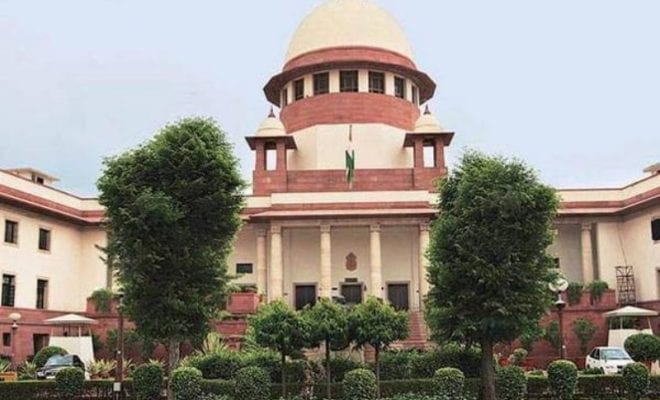SC stays execution of farm laws, forms panel to help farmers

Last updated on January 18th, 2021 at 08:11 am
SC stays execution: SC has stayed Centre’s implementation of three farm laws & formed a panel to negotiate with farmers
In a major development amid the ongoing farmers’ protest across North India, the Supreme Court on Tuesday stayed the implementation of the three controversial farm laws. The apex court also established a four-member committee of experts to listen to farmers’ grievances related to the contentious laws. In its 11-page order, the court has stated that the committee will be hearing all stakeholders in the matter, including both farmers and the Centre, in order to examine various aspects of the legislation for any modifications to reach a consensus between the two sides. A three-judge SC Bench led by CJI (Chief Justice of India) Sharad A. Bobde has given two months to the committee to submit its report.
However, several farms unions have criticized the committee, asserting that its members have previously extended their support to the new laws. At the same time, they have expressed their interest in ongoing continuing the talks with the Centre to reach an agreement. Even after several rounds of negotiations between farmers and the Centre, no concrete deal has been agreed upon so far. As per reports, the next meeting is scheduled to take place on Friday.
While concluding the order, the court maintained that the farmers should consider the stay on implementation of the laws as an “achievement of their peaceful protest” for the time. The court also hailed the peaceful natures of the farmers’ protests that have been going on across various parts of North India for several weeks now.
The members appointed by the top court in the committee include: Anil Ghanwat, President of Shetkari Sanghatana; Bhupinder Singh Mann, National President of the Bhartiya Kisan Union (BSU) and All India Kisan Coordination Committee; Ashok Gulati, agricultural economist and former chairman of the Commission for Agricultural Costs and Prices; Dr. Parmod Kumar Joshi, agricultural economist and Director for South Asia region at the International Food Policy Research Institute.
With the Supreme Court’s stay, the Centre cannot enforce any actions to implement the farm laws until further notice. Meanwhile, the next SC hearing on the farm laws will take place after eight weeks.
Thousands of farmers have been camping on the outskirts of Delhi and other regions bordering the national capital for almost two months now to show their opposition against the three farm laws approved by the Union government last year. While the Centre has maintained that the new laws will benefit the farmers and reform the country’s agricultural sector by removing the middlemen, protesting farmers have stated that the laws will allow private buyers to exploit them.
The three controversial laws are: The Essential Commodities (Amendment) Act, The Farmers’ Produce Trade and Commerce (Promotion and Facilitation) Act, and The Farmers (Empowerment and Protection) Agreement on Price Assurance and Farm Services Act.



